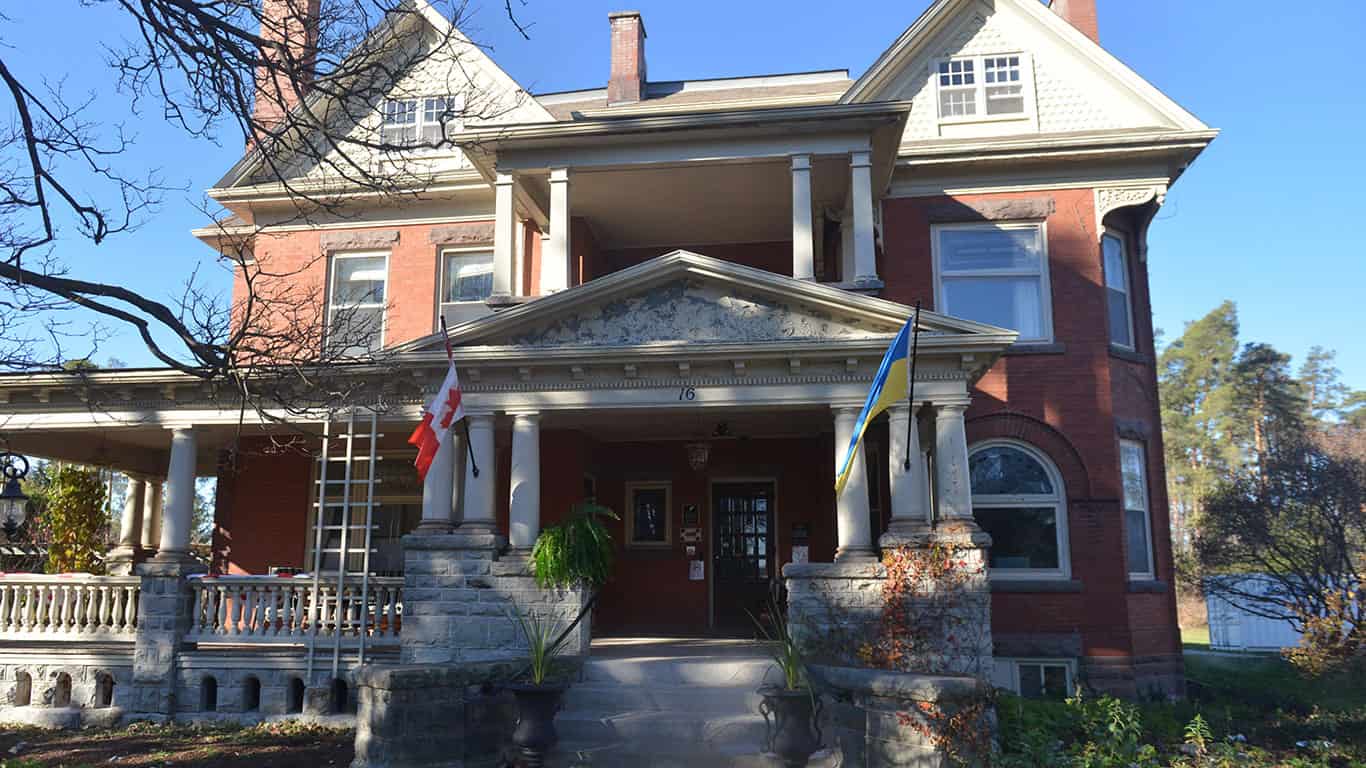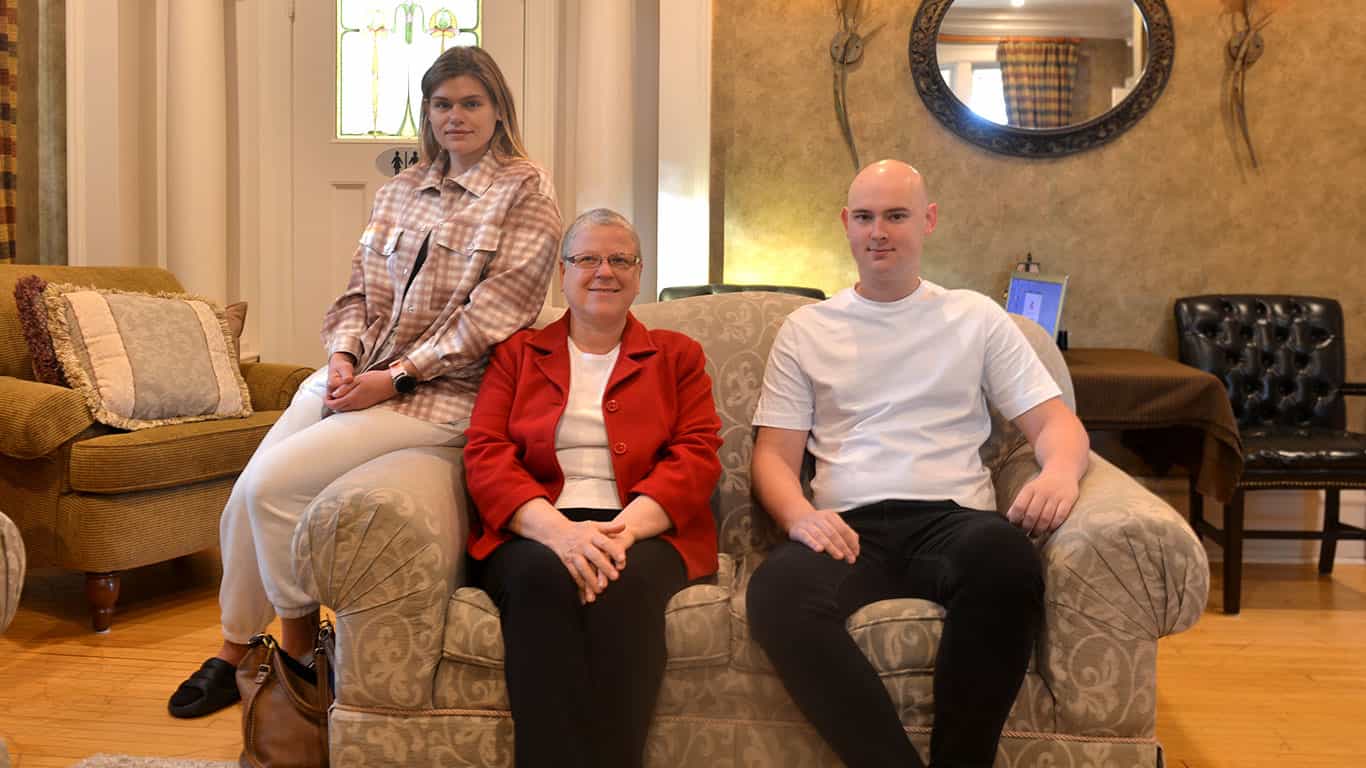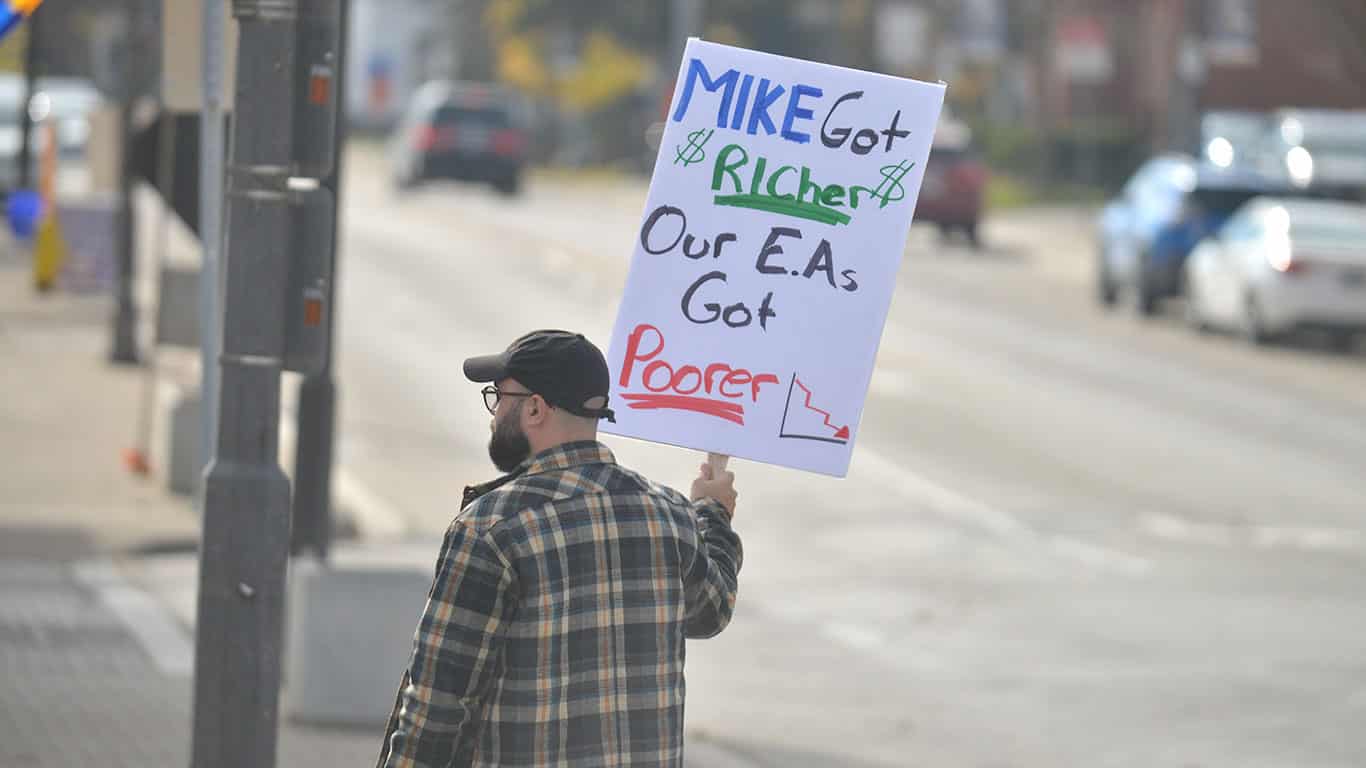Demand for services, particularly housing, continues to outstrip supply as the region continues to welcome Ukrainians fleeing the Russian attack on their country.
There are now between 1,500 and 1,700 Ukrianians who have settled in the region, according to Waterloo Immigration Partnership. Executive director Tara Bedard points out that many are still facing challenges in adjusting to their new life.
“There’s the situation that people have come into this community from; they are fleeing an active war situation. Many still have family and friends who are in Ukraine… the war is still happening. We certainly hear a lot about the housing challenges that some of the Ukrainians who have come into the region are facing. We all know…the region and many communities across Canada are having a housing crisis right now,” Bedard said.
English proficiency has also been a challenge for some Ukrainians, Bedard explained, noting that’s had an impact on their ability to find suitable employment.
“A lot of challenges. Each one of them takes time to address, they’re all interconnected. Not every family is having the challenges with housing. Not every family is having the challenges with employment. Not every family is having challenges with language, for example, but some are impacted by some or all of those things in different ways,” Bedard said.

The Waterloo Region Grassroots Response (WRGR) is a group of volunteers helping Ukrainians coming to the region with a wide range of needs. Volunteer Stephanie Goertz said housing is the biggest need for newcomers right now.
“Waterloo Region is known as a major settlement location within western Ontario. The problem is that, as we know, housing is in short supply within the region,” she said.
WRGR is currently looking for host families to provide short- and medium-term housing solutions. As there is an application that starts before those in need leave Ukraine, it is not just on a first come, first serve basis, Goertz explained.
“It’s totally up to the host. We [just] connect. They let us know how many bedrooms they might have and how many people that they might be able to welcome in their home. If we have someone with some other application process that might need to meet the same qualifiers, we’ll connect them and then they get the opportunity to talk
The group has about 12 families looking for hosts at any given time. The lack of housing has made it difficult to access services for newcomers, she added.
“We have such amazing resources and organizations and teams that want to help, but if Ukrainians can’t find a place to stay to access settlement services, then they’re not being fully utilized,” she said
Bedard concurred, noting that many services are tied to having a fixed address.
“We’ve seen this with our school boards: one of the triggers for school enrolment is having proof of address in Ontario,” she said
While the Immigration Partnership has been able to make arrangements for students whose families do not yet have a permanent address, finding permanent housing is time-consuming, Bedard said.
“When you’re spending all of your time focused on looking for housing for your family, you don’t have time to access the other services and support that you need to attend to the other needs of your family, like finding a job or finding childcare,” she explained. “When housing is the big and pressing issue, it makes it very challenging to be able to look at the services that you need for employment or other things.”
Rosslyn Bentley, the executive director of the Woolwich Community Health Centre which has been supporting the Woolwich Guest House for Ukrainian Families in St. Jacobs, has seen the challenges the housing situation has had on refugees.
“We already knew housing would be an issue because there’s so little rental accommodation in the rural townships, and it’s expensive when it does come up. So we already knew that was going to be a challenge, but how to meet that, of course, was not really something we had a plan for in a detailed way until we discovered what it’s been like,” Bentley said.
“We’ve now agreed that whenever one of the residents is looking at a place, we have a volunteer drive them there, so that they can get there really quickly so they don’t miss out if it is suitable accommodation.”
Finding housing in the region is difficult enough for Canadians or those who have been here some time, Bentley noted.
“It’s difficult to establish yourself and it is hard to understand too if your language isn’t sophisticated, because it’s not easy negotiating renting somewhere,” she added.
The guest house that opened in August is currently hosting five families totalling 21 people. It has now seen two families transition into more permanent housing. The guest house has received overwhelming support, Bentley said.
“We’re so grateful because new needs are emerging all the time.… We’ve been able to help people more than we were originally expecting in some of these ways, with their first rent, with winter clothes and transportation to get to appointments.… That was not what we originally planned. We were only raising money to meet the expenses of running the house, but people have wanted to make sure that the residents are welcome.









